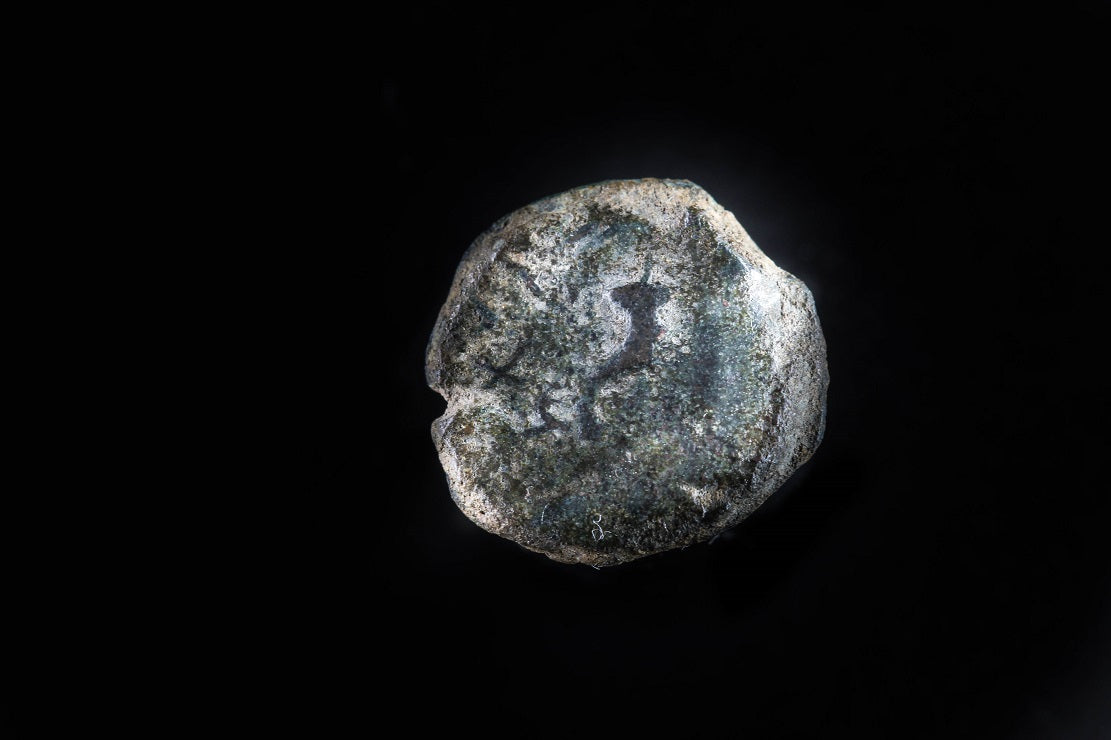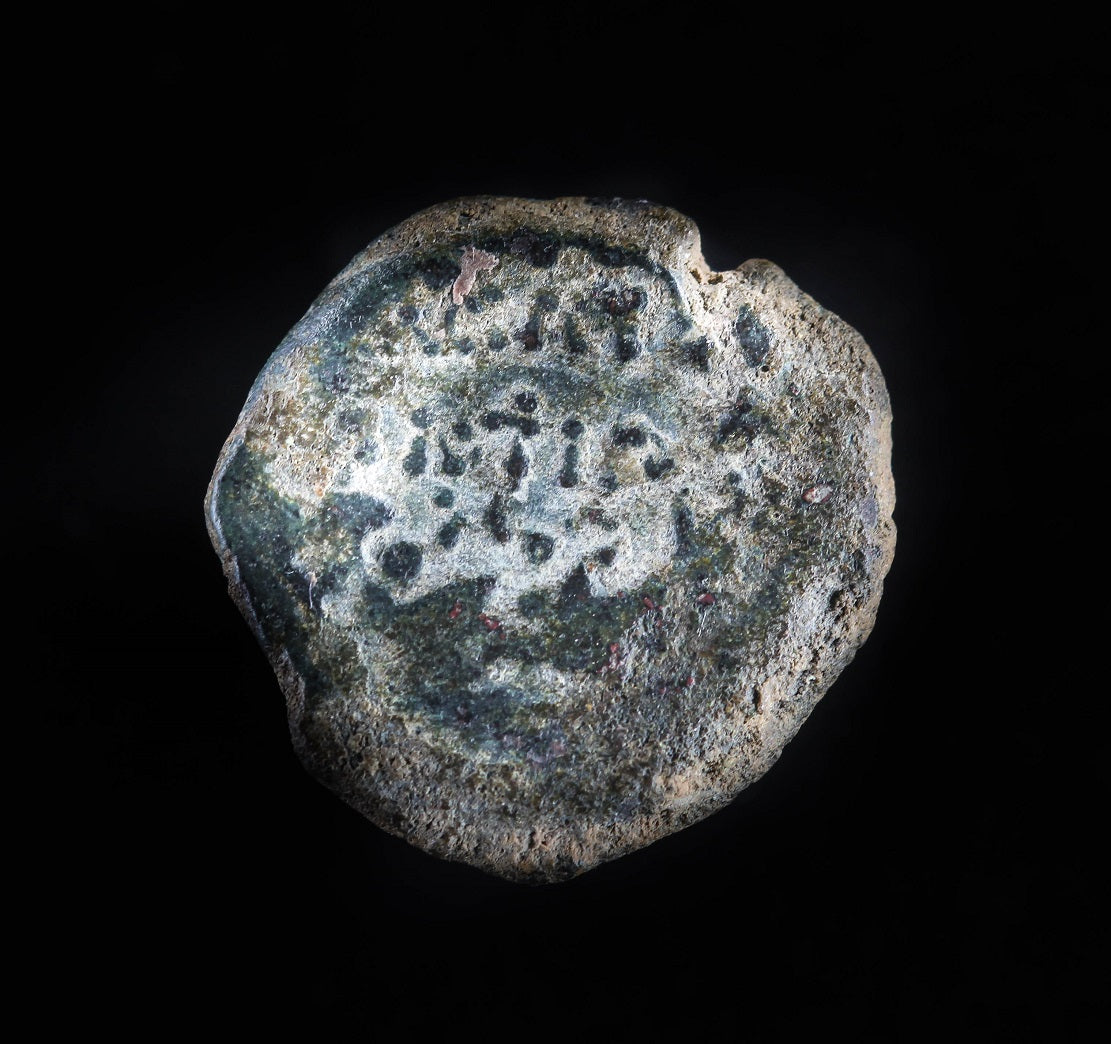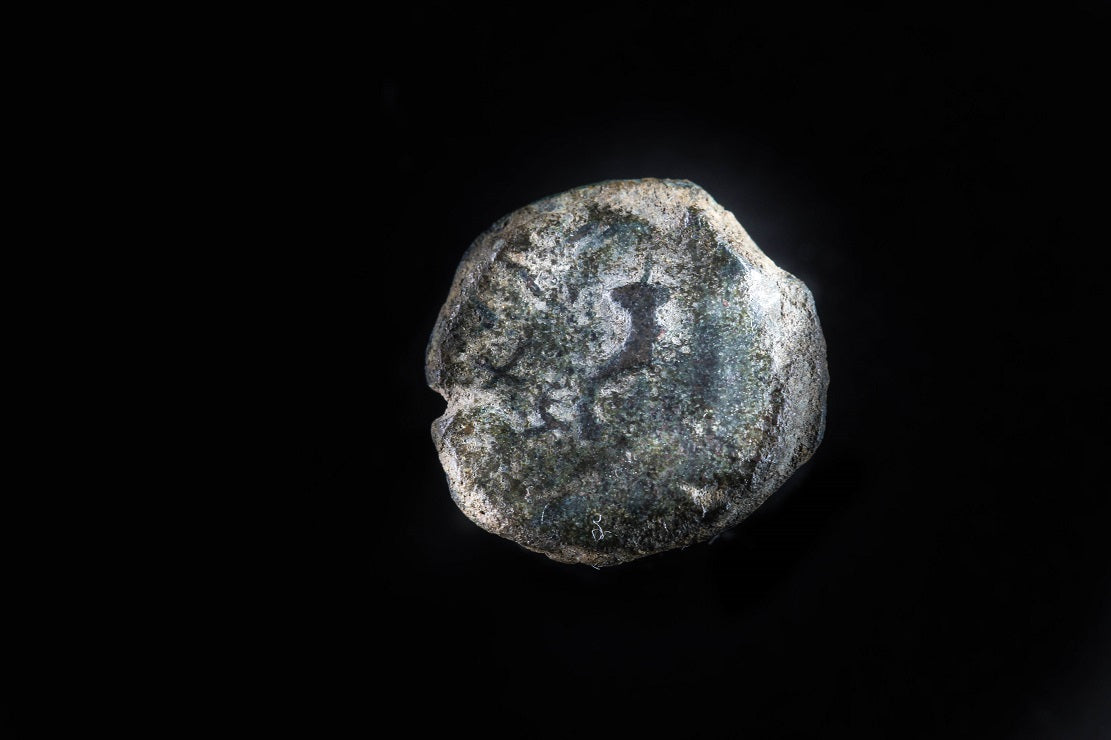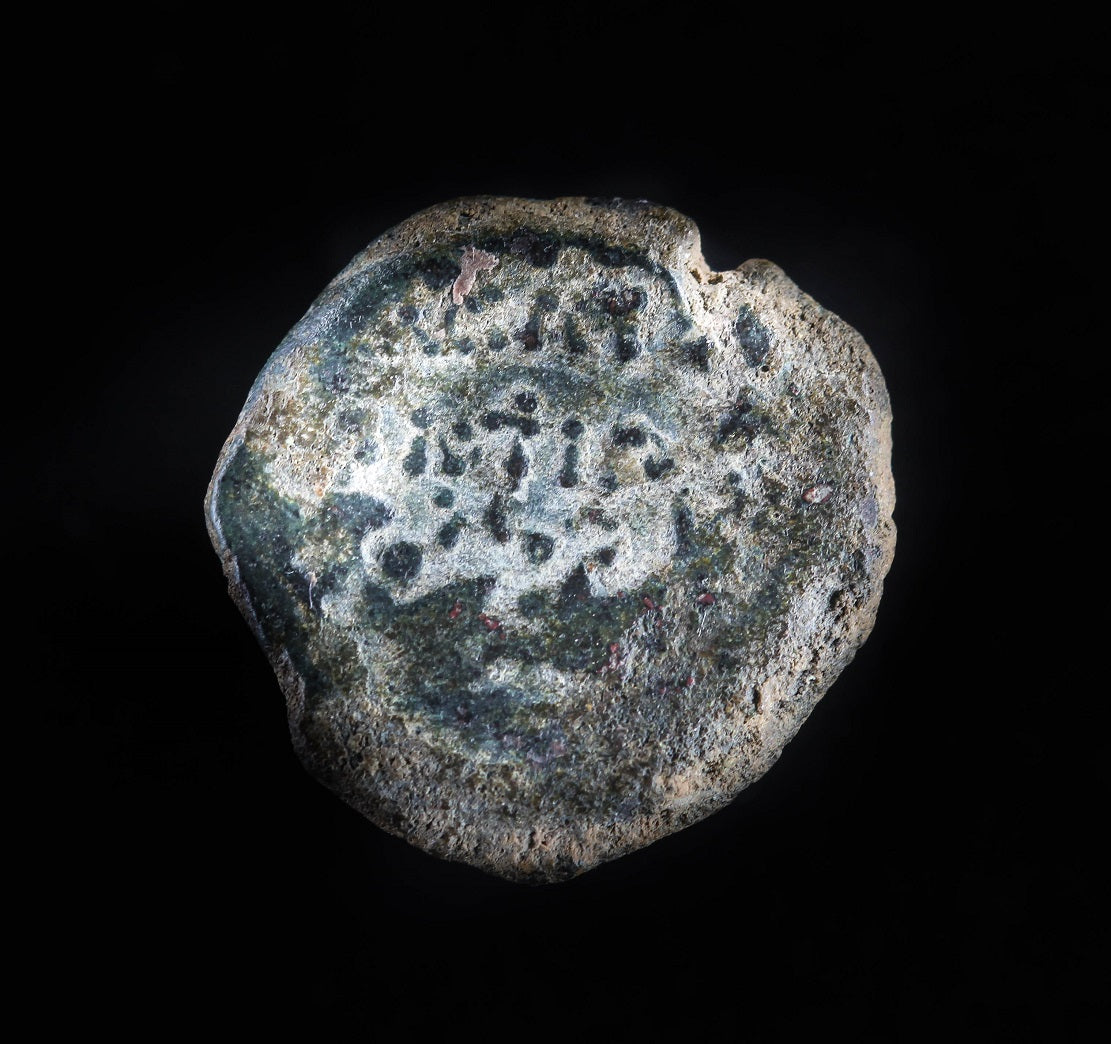1
/
of
2
orientalmuseumjerusalem
MATTATIAH ANTIGONUS
MATTATIAH ANTIGONUS
Regular price
$900.00 USD
Regular price
Sale price
$900.00 USD
Unit price
/
per
Taxes included.
Shipping calculated at checkout.
Couldn't load pickup availability
Antigonus II Mattathias (Hebrew: מתתיהו אנטיגונוס השני, Matityahu), also known as Antigonus the Hasmonean (died 37 BCE) was the last Hasmonean king of Judea. A puppet king installed by the Parthians, he was the son of King Aristobulus II of Judea. In 37 BCE Herod handed him over to the Romans for execution, after Antigonus's three-year reign during which he led the Jews' fierce struggle for independence against the Romans
Antigonus was the second son of Aristobulus II, and together with his father, were carried off as a prisoner to Rome by Pompey in 63 BCE. Antigonus eventually escaped and returned to Judaea in 57 BCE. Despite an unsuccessful attempt to oppose the Roman forces there, the senate released him, yet he refused to surrender his dynastic rights. After the death of his older brother Alexander, Antigonus claimed that his uncle Hyrcanus was a puppet of the Idumaean Antipater and attempted to overthrow him with the help and consent of the Romans. He visited Julius Caesar, who was in Syria in 47 BCE and complained of the usurpation of Antipater and Hyrcanus. In 42 BCE, he attempted to seize the government of Judaea by force with the assistance of his brother-in-law, Ptolemy (son of Mennaeus) but was defeated by Herod
Death of Antigonus
Following the conquest of Jerusalem by the Parthians, Herod fled quickly from Masada to Rome, where he was nominated in 40 BCE as the new king of Judea (Latin: Rex socius et amicus Populi Romani, allied king, and friend of the Roman people) by the Senate on the recommendation of the triumvir Mark Antony. On Herod's return to Judaea from Rome in 39 BCE he opened a campaign against Antigonus and laid siege to Jerusalem. In the spring of 38 BCE, Herod wrested control of the province of Galilee and eventually all of Judea other than Jerusalem. Due to the approach of winter, Herod postponed his siege of Jerusalem, where Antigonus and the remnants of his army took refuge, until spring. Herod and a supporting Roman army were kept out of Jerusalem for 3–5 months but the Romans did eventually capture the city. However, the supporters of Antigonus fought until the Romans reached the inner courtyard of the Temple.[4] Antigonus was taken to Antioch and executed, ending Hasmonean rule.
Josephus states that Mark Antony beheaded Antigonus (Antiquities, XV 1:2 (8–9). Roman historian Cassius Dio says that he was crucified and records in his Roman History: "These people [the Jews] Antony entrusted to a certain Herod to govern; but Antigonus he bound to a cross and scourged, a punishment no other king had suffered at the hands of the Romans, and so slew him." In his Life of Antony, Plutarch claims that Antony had Antigonus beheaded, "the first example of that punishment being inflicted on a king
Share




